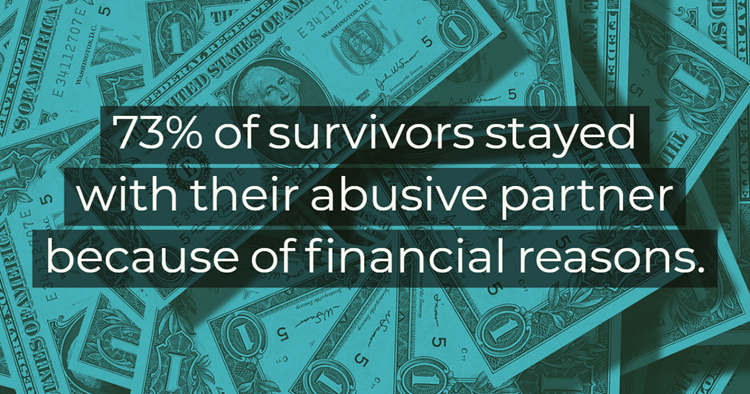
Economic or financial abuse is when someone uses power and control over someone else’s finances, money, and/or livelihood. Financial abuse occurs in approximately 99% of abusive relationships. Many victim/survivors describe financial abuse as the main reason that they stayed in an abusive relationship or went back to one.
Hopeline knows how difficult it can be to leave an abusive relationship, especially when finances come into play. It takes someone an average of seven times to successfully leave an abusive relationship, so it is not unusual to struggle to get away from an abuser who has purposefully taken control of things like money or work. Please never hesitate to reach out to us if you or someone you know needs our help. All services are free and confidential, and we can be reached at our 24 Hour Crisis Line at 252-338-3011 or on our website, here.
Some examples of financial abuse provided by the National Domestic Violence Hotline include:
- Giving an allowance and closely watching how you spend it and/or demanding receipts for purchases
- Placing your paycheck in their bank account and denying you access to it
- Preventing you from viewing or having access to bank accounts
- Forbidding you to work or limiting the hours that you can work
- Maxing out credit cards in your name without permission or not paying bills on credit cards, which could ruin your credit score
- Stealing money from you or your family and friends
- Using funds from children’s savings accounts without your permission
- Living in your home but refusing to work or contribute to the household
- Making you give them your tax returns or confiscating joint tax returns
- Refusing to give you money to pay for necessities/shared expenses like food, clothing, transportation, or medical care and medicine
Effects of Financial Abuse
- Victims of financial abuse lose a total of 8 million days of paid work each year. The lack of paid sick days or other job protections prevents survivors from taking time off work to recover from injury, seek safety, or pursue a court case.
- The total annual cost of domestic violence in the U.S. in 2015 was estimated to be $8.9 billion. Approximately $6.3 billion of these costs were for direct medical and mental health services.
- The medical costs for survivors of emotional abuse, assault, or rape range from $1,017 to $2,665 per incident. Health care costs are 42% higher for domestic violence survivors.
- Experiencing violence can have a long-term impact upon financial security. A 2000 survey estimated an average lifetime income loss of $36,000 for teen victims of sexual violence, (equivalent to $52,242 in 2017) due to decreased educational achievement, necessary sick leave, and impact on career trajectory.










